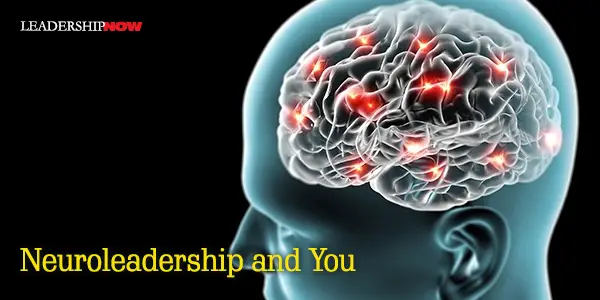 |
 |
07.20.07

Neuroleadership and You
 There is the hope that when applying a science to leadership, one can make it as mechanical as possible. Neither benefits when this is the goal. If we want the science to bring us laboratory results that we can apply in the real world, we will be disappointed. I would agree with Warren Bennis, quoted in the article as saying, "It's full of possibilities. What worries me is people being taken in by the language of it and ending up with stuff we've known all along." It’s worrisome, too, that we live in a time when some people will not accept common sense unless there are numbers behind it or a scientific study proving it beyond all doubt. There are those also who cannot find value until they have spent enormous sums of money on it. For them, the combination of science and leadership is priceless. The problem with rushing to apply a science to any field is that passion often overrides experience; we tend to throw out conventional wisdom and common sense in favor of the new. In the excitement, we begin to look for absolutes where there are none and never will be. Comparing brain waves of leaders—moral/immoral, successful/unsuccessful—to create a kind of yardstick or means of selection is off the mark and beyond the scope or intent of neuroleadership. If we are looking for it to replace intuition, judgment and thought, we are mistaken. If we want to say, “This is a good brainwave for leaders, and this is a bad brainwave,” we don’t understand the human spirit. I wouldn’t expect neuroleadership to provide all kinds of new ideas. It will look at old ideas in a new way. This is often the key to finally bringing us the depth of understanding necessary to adapt ideas to a specific situation. What neuroleadership can do is reframe ideas in terms of how the mind works. Specifically, how we learn, retrieve memories, experience and interpret our world. This will provide guidance to best practices. It will reinforce some practices based on solid neuroscientific research. Conversely, it will provide sound reasons why some approaches feel forced or don’t work at all. If they go against the way the brain is wired, we are just spinning our wheels. Good to know. Leadership is not a science, and scientific methods applied to it will never make it one. But, if neuroleadership will help us understand why we make the connections the way we do, if it will show us why we need to allow people to think and learn in ways that are best suited for them, as opposed to forcing people to all think in the same manner, if it will help us to improve and leverage our own and other people’s thinking, then it will have done a big service. I look forward to what we will find in this exciting new combination.
Posted by Michael McKinney at 06:57 AM
|
BUILD YOUR KNOWLEDGE
 

How to Do Your Start-Up Right STRAIGHT TALK FOR START-UPS 
Grow Your Leadership Skills NEW AND UPCOMING LEADERSHIP BOOKS 
Leadership Minute BITE-SIZE CONCEPTS YOU CAN CHEW ON 
Classic Leadership Books BOOKS TO READ BEFORE YOU LEAD |